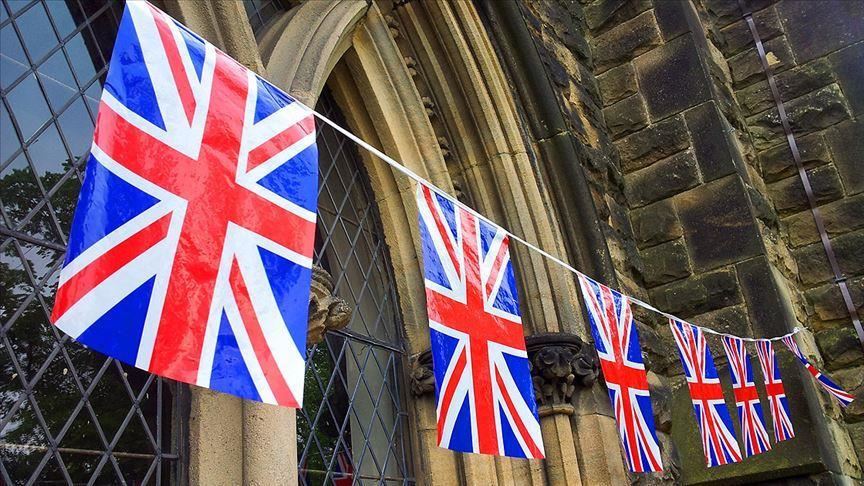
LONDON
Trust in the British government has crashed in recent weeks according to a new poll, as British authorities announced on Monday that the total number of those who have died from coronavirus across the UK passed 39,000.
The COVID-19 death toll in Britain is now 39,045, with 111 new deaths over the past 24 hours. Health Secretary Matt Hancock said this was the lowest figure since the lockdown began. The total number of dead also includes a further 445 deaths, in a revision of previous figures.
Public trust
A new poll carried out by YouGov for the Reuters Institute for the Study of Journalism found that trust in the government over the course of the coronavirus pandemic has plummeted since April.
The Guardian quoted Rasmus Kleis Nielsen, the institute’s director, as saying: “I have never in 10 years of research in this area seen a drop in trust like what we have seen for the UK government in the course of six weeks.”
Less than half, 48%, said the government was relatively trustworthy in late May, down from 67% just six weeks earlier.
Trust in news organizations also slipped from 57% to 46% over the same period.
“These drops are large and significant,” the institute said in their statement, “and much more dramatic than the significantly smaller changes around other institutions.”
Delving deeper into the numbers, they said the drop in trust in the government extends across the political spectrum: the right (down 10%), the center (down 19%), and the left (down 24%). Britain is governed by the center-right Conservative Party.
The new poll also found that more Brits were worried about false or misleading information about coronavirus from the UK government, reaching 38% (up 11%), and from politicians, reaching 40% (up 9%).
“There has been no significant parallel change in the number of people who say they are concerned about false or misleading information about coronavirus from news organisations or other institutions,” the institute said.
The poll went on to find that the number of Brits who said that the UK government was doing a good job responding to the crisis was down 21% since April, including a 25% drop for those in the political center, and 21% drop for those on the right.
Just 27% think that the coronavirus situation in the UK is heading in the right direction, down from 35% in April, and 25% think the UK is on the wrong track, up from 10% in April, with 42% thinking the picture is mixed.
Part of the decline can be explained by the Dominic Cummings scandal, where the prime minister’s chief adviser was accused of breaking lockdown rules, provoking a huge controversy.
“But importantly, as we show below, the decline was well underway before this story broke, suggesting a much wider problem,” the institute said.
“By late May, less than half the British public consider the UK government a relatively trustworthy source of news and information about coronavirus. The same holds for news organisations. Just a quarter consider individual politicians relatively trustworthy.
“The drops for all three sources are large and significant, and much more dramatic than the significantly smaller changes around other institutions and around trust in ordinary people.”
Too soon for easing lockdown?
At a press briefing earlier in the day, a prime ministry spokesman defended the government’s decision to start easing the lockdown in England on Monday, despite top scientists voicing concerns that the government was moving too fast too soon.
“We have worked to gradually and safely ease the lockdown measures, the consensus from the scientists is if test and trace is up and running and the public follow the social distancing guidance then it’s unlikely the measures will push the R above one,” the spokesman said, referring to the virus’ reproduction number.
The spokesman added that people should continue to follow social distancing guidelines and stay two meters apart to keep the virus under control.
According to an analysis by Springboard, a provider of data and intelligence on customers in stores, shopper numbers surged 36% in a week compared with last Monday.
Springboard’s Diane Wehrle said: “It appears that even though only markets and car showrooms have opened today in addition to essential stores, shoppers are heading back into bricks-and-mortar destinations.”
Non-essential stores, including clothes stores, will not open until June 15.
Monday also marked the day thousands of schoolchildren across England returned to school, but many others stayed put at home due to parents’ concerns it was still too early for schools to safely reopen.
Since first appearing in China last December, the novel coronavirus has spread to at least 188 countries and regions.
The pandemic has killed almost 374,000 people worldwide, with some 6.23 million confirmed cases, with some 2.67 million recoveries, according to figures compiled by the US' Johns Hopkins University.








